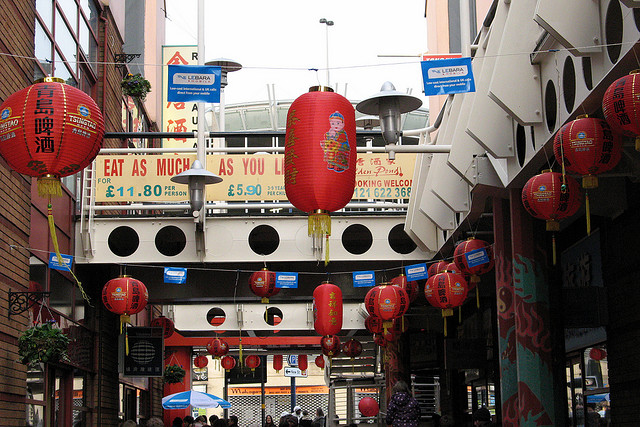There are spaces in the city which are designed to be a terminus. Shops are a terminus. Pubs are a terminus. We run to them. We pop to them. We are at them, we are in them or perhaps we are down them. We never travel through them.
Run with me now, run with me through the pubs.
One of my regular city centre running routes pushes me through—never to—the Arcadian.

Launched as a confusing architectural proposition of East-meets-West in the city’s China Town, time and use have added to the Arcadian’s cocktail of ideas. Originally its anchor tenant was a cinema which enjoyed a symbiosis with chic bars, chain pubs, High Street restaurant names, and hole-in-the-wall Chinese cafés.
The cinema is now an apartment block stuffed into a multiplex outline whilst those chic drinking holes, still wearing their first fit out, stand as a tired testament to spent 90s optimism—Blair’s Bars. Even the few pubs which have changed hands recently wear this tired air on top of their fresh decor, as though a consumption sits deep in the development’s bones.
The Arcadian is a split level open air mall. I run across first floor wooden walkways, and plunge myself down steel staircases. I choose the path through here because sometimes a runner seeks a certain distance or must complete their exercise within a certain time and we pick the paths that give us the outcomes that we most need; I choose this path because it feels transgressive, to enter a destination but always with trajectory, to derivé but never to arrive; I choose this path because its mishmash of signs and ideas lend a dramatic backdrop to my run, because running through here is weird, like running through the set of Bladerunner.

